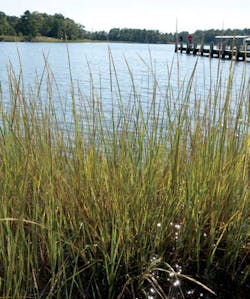Clarification in Concord
The Concord Department of Public Works serves the needs of approximately 16,000 residents and local businesses. Prior to 2007, the town of Concord, Mass., operated under a National Pollutant Discharge Elimination System (NPDES) permit that allowed an interim seasonal phosphorus limit of 0.75 mg/L. But after the Massachusetts Department of Environmental Protection and the U.S. Environmental Protection Agency (EPA) issued a new permit with a seasonal phosphorus limit of 0.2 mg/L, the plant’s existing phosphorus treatment—the addition of alum prior to the secondary clarifiers—was not expected to meet the future permit limits.
Discovering Flexibility & Reliability
Engineers evaluated multiple configurations of processes (the Evoqua CoMag System, dissolved air floatation, sand filters and membrane biological reactors) to help Concord select an option that would provide process flexibility and reliability on the space’s limited site. A combination of evaluation criteria was used to screen the alternatives that merited further evaluation. After an 18-month trial of the patented CoMag System, the town of Concord concluded that it was the optimal solution. The final system design was for 1.25 to 4.4 million gal per day, in keeping with the NPDES total phosphorous limit of 0.2 mg/L.
Clarification That Goes Beyond Convention
The CoMag System comprises conventional chemical coagulation and flocculation with the proven benefits of high-rate ballasted sedimentation. By adding fully inert, finely ground, nonabrasive magnetite (Fe3O4) to the flocculation process, the CoMag System succeeds in significantly increasing the weight and settleability of the chemical floc. The result of this easily managed process is high-rate, reliable clarification and the near 100% removal of particulate as small as 10 microns, all without the potential of clogging and plugging that is characteristic of media, cloth or membrane filtration.
Playing an Integral Role While Minimizing Costs
The CoMag System installed for the town of Concord plays an integral role in a larger facility upgrade that includes improvements to the headworks, disinfection system, plant utilities, controls and other processes. In fact, after testing the effluent produced by the CoMag System, the designers felt confident that a smaller and less expensive UV disinfection system could be used due to the excellent water quality.
For more information, contact Marc Roehl at [email protected] or 262.521.8570.
